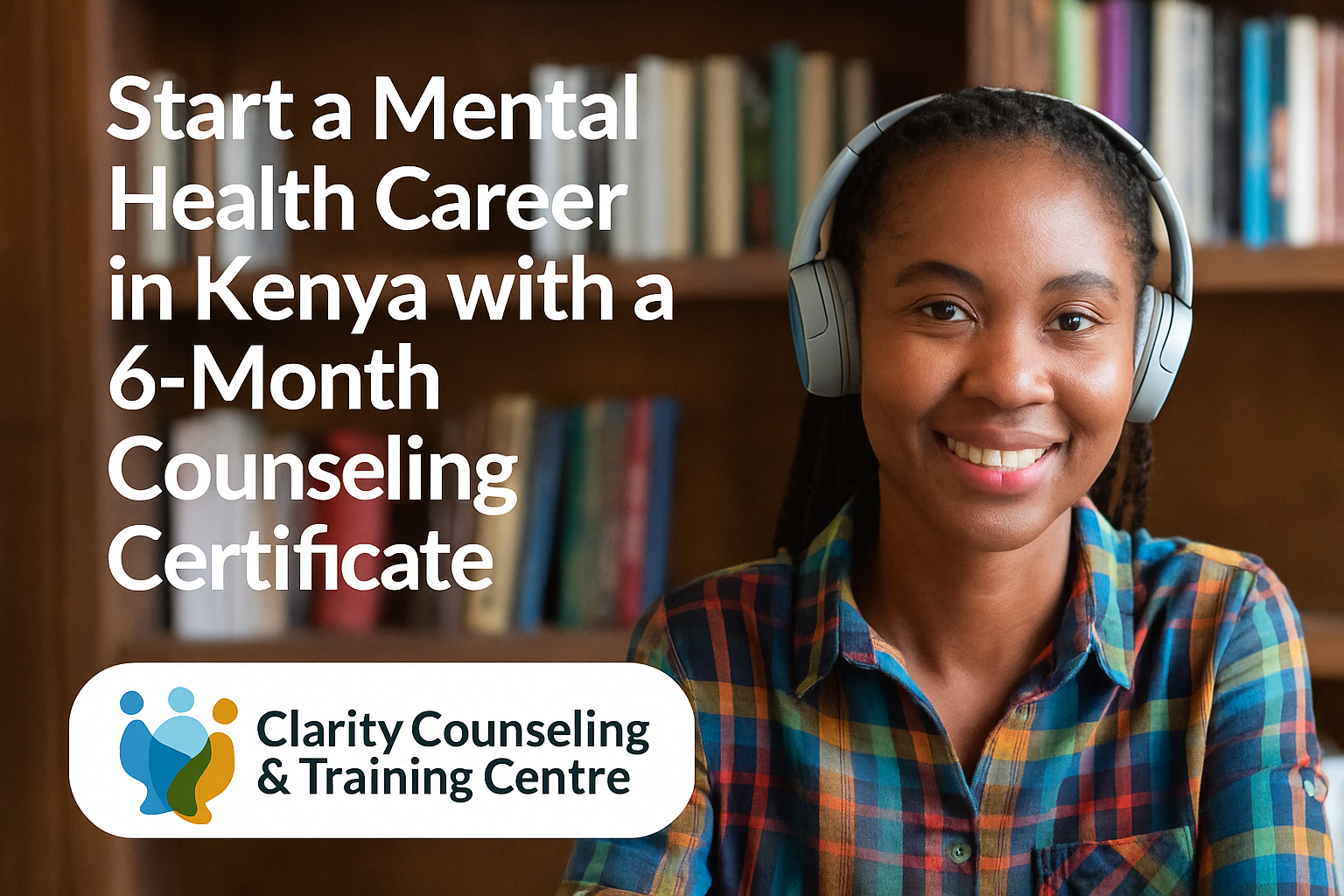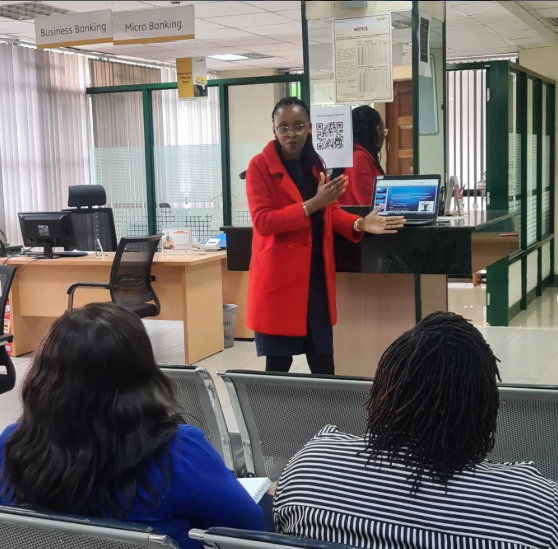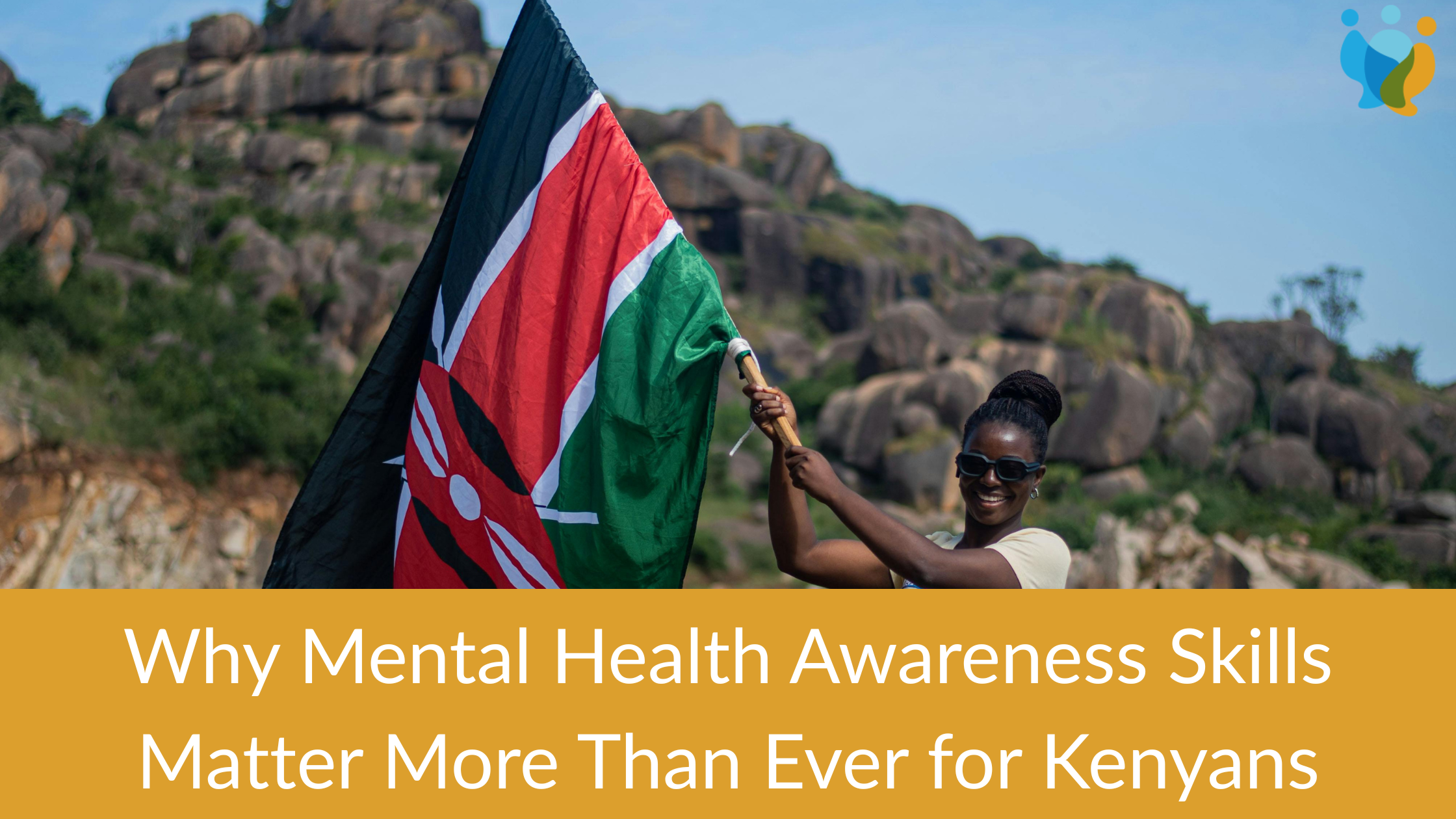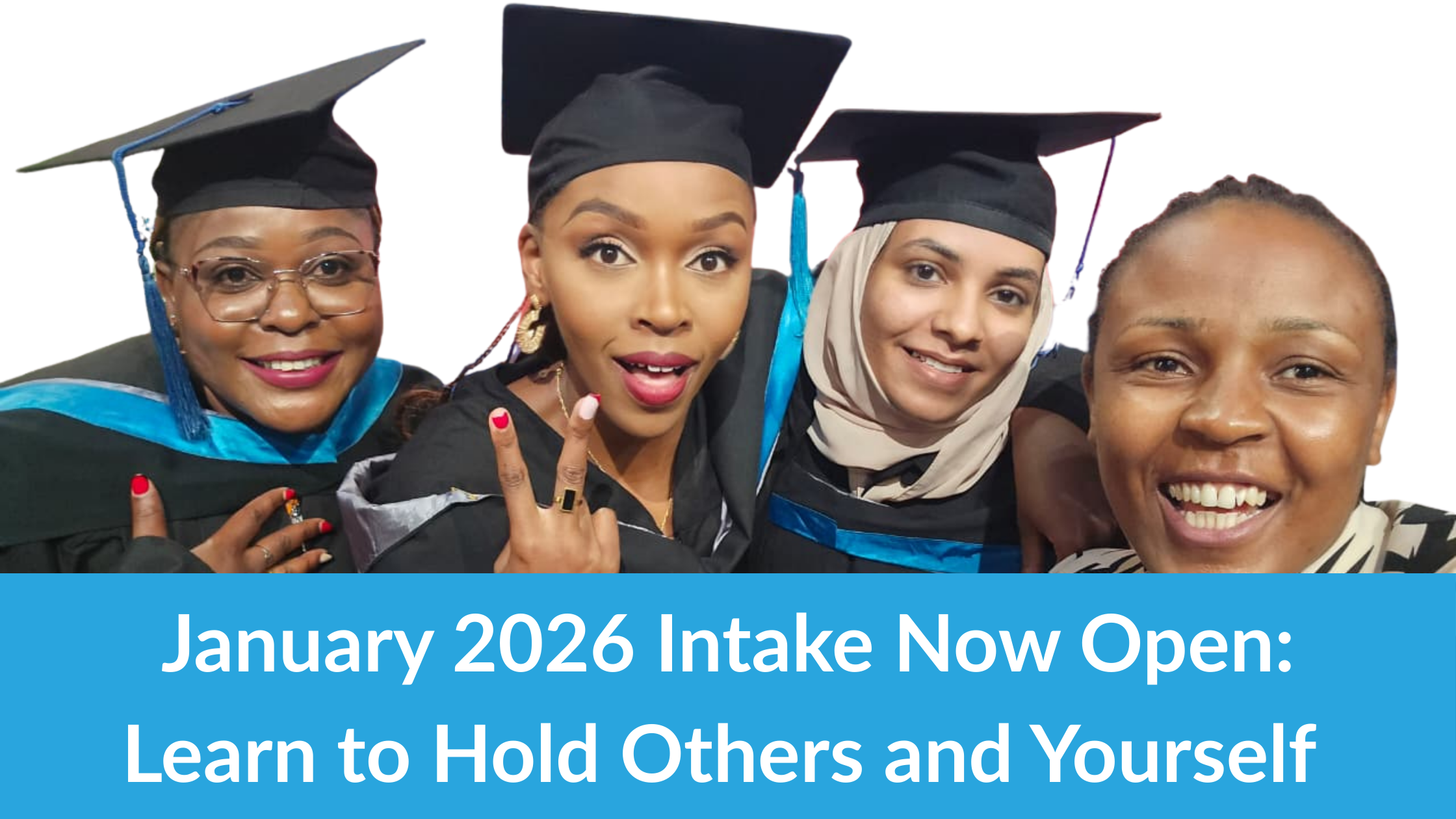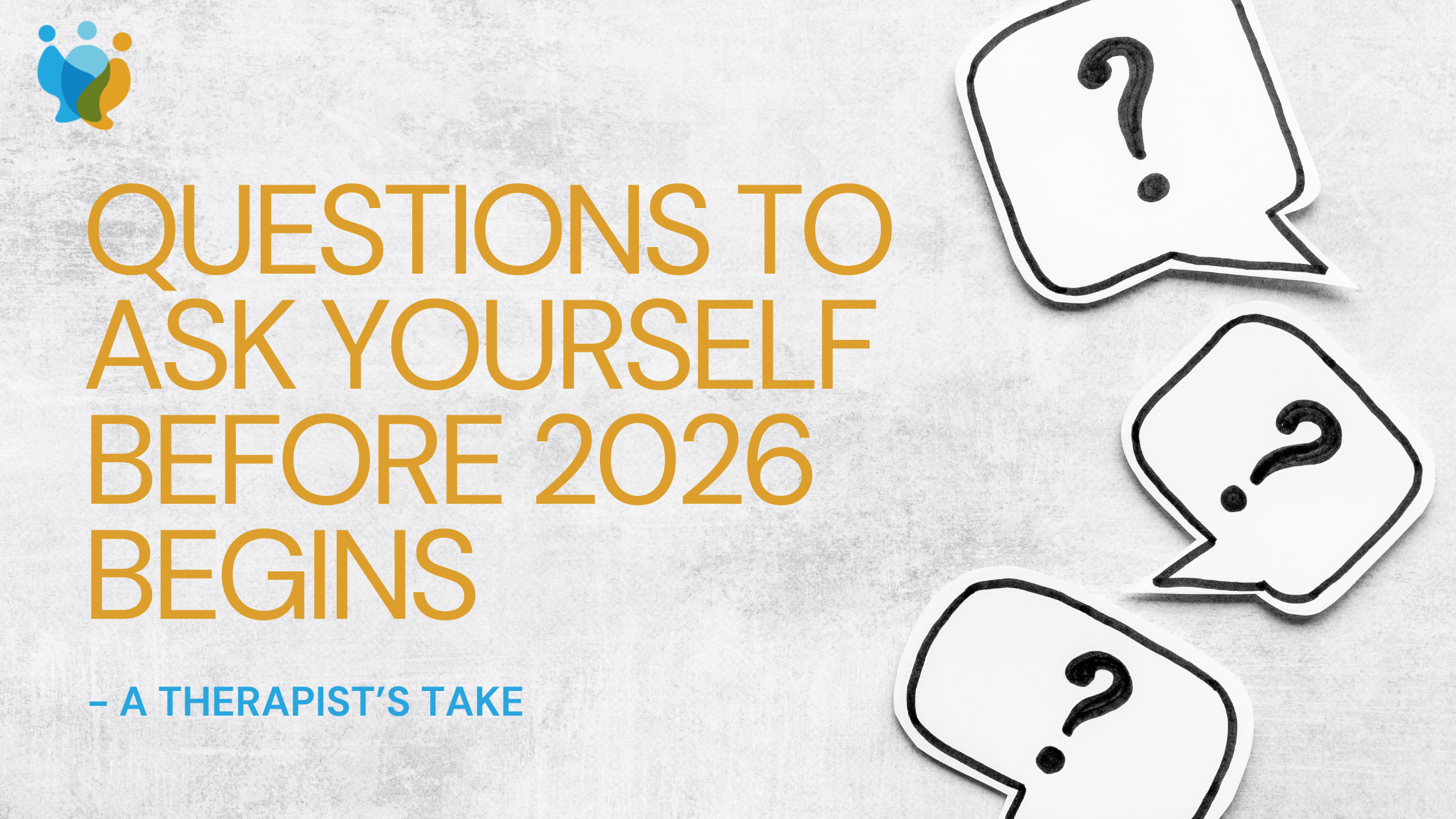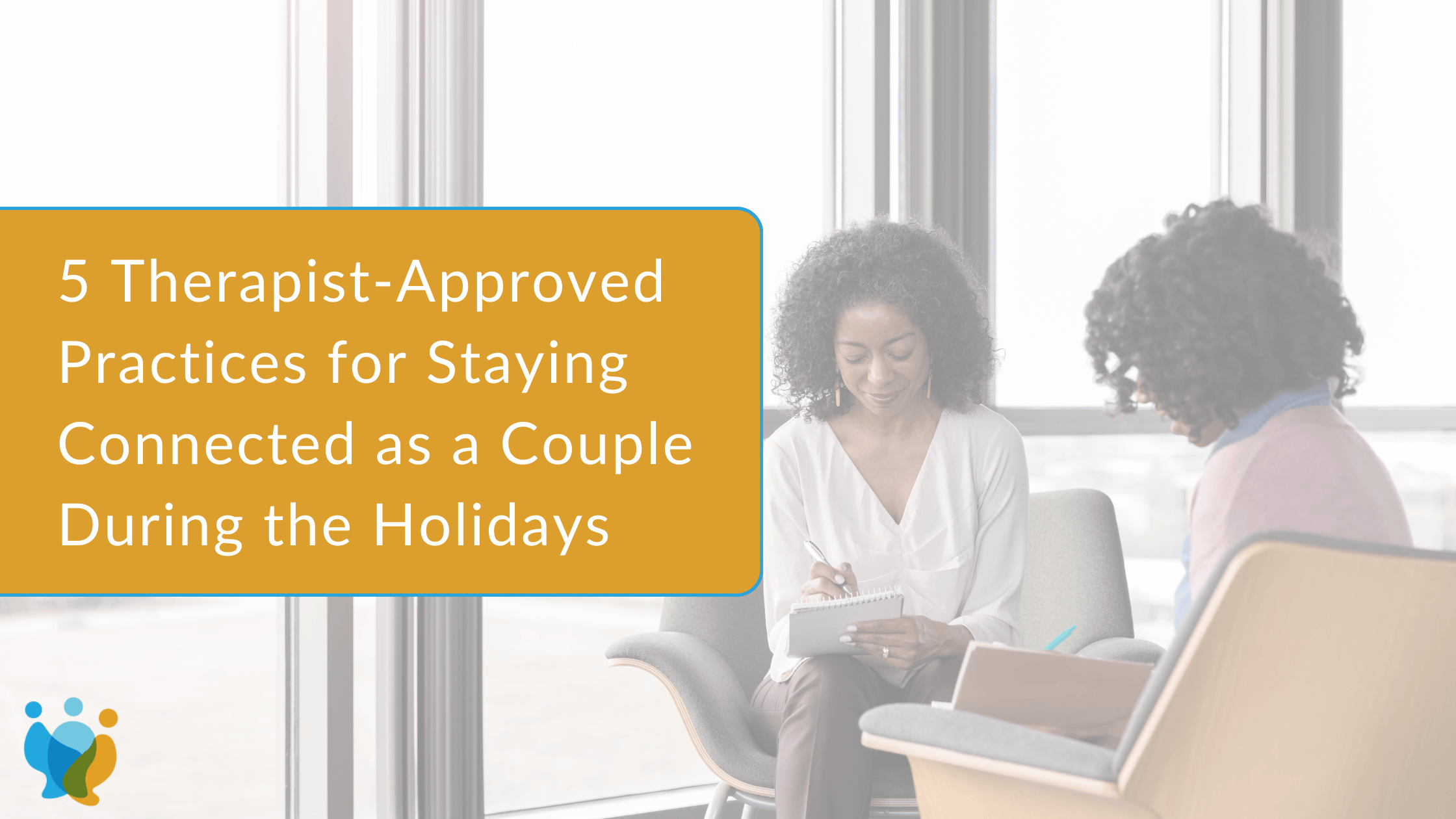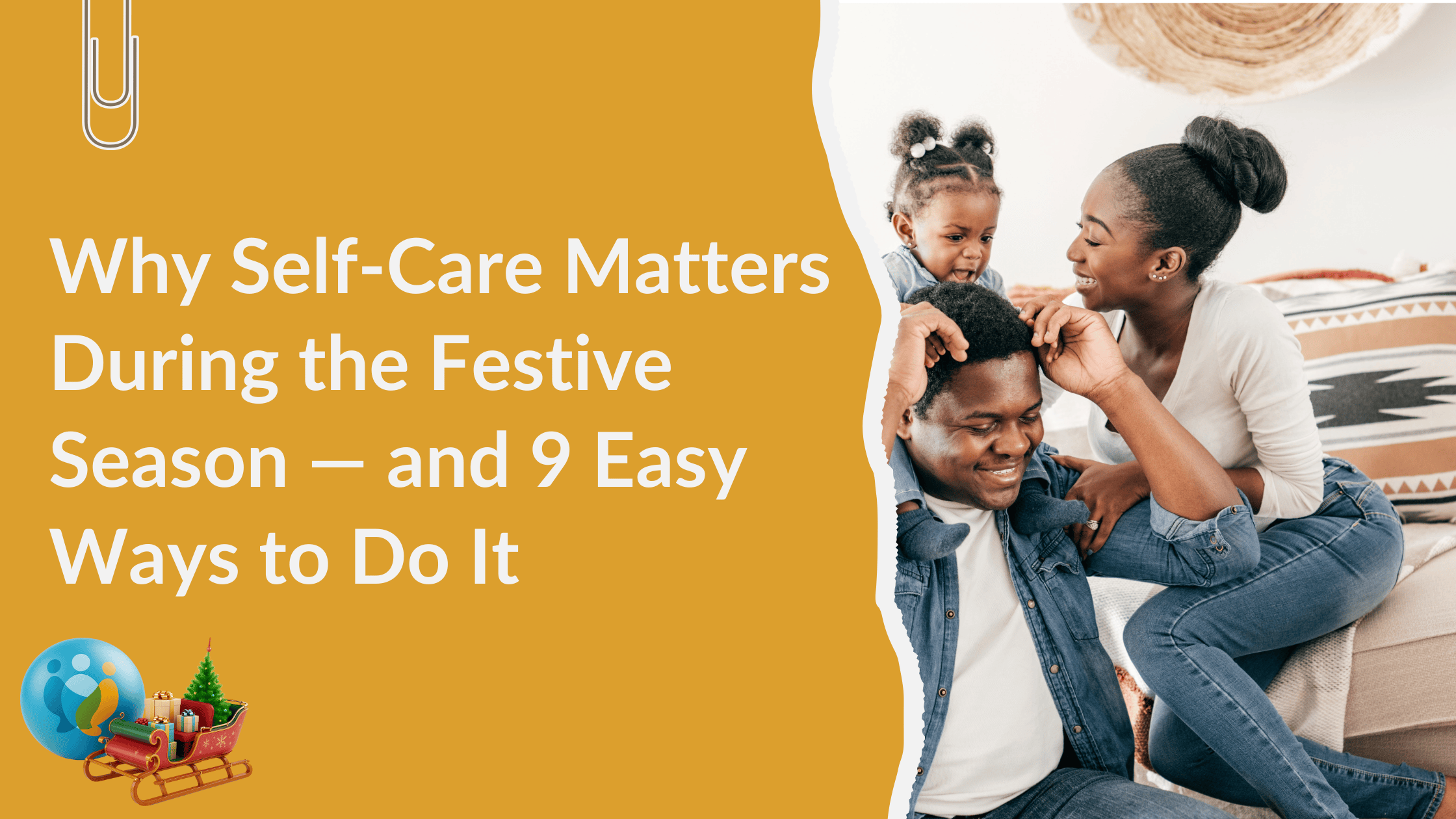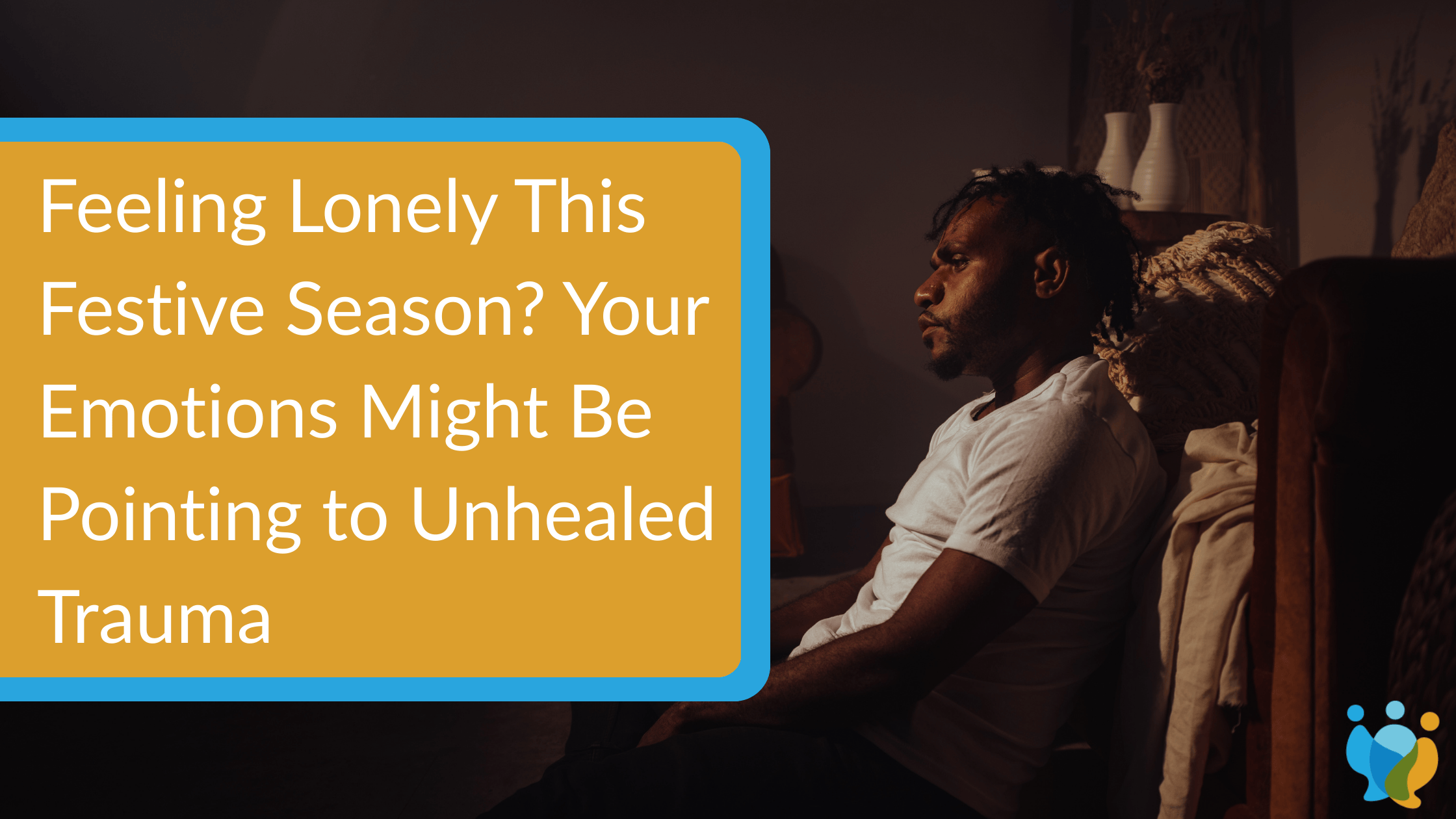What Makes Clarity’s Diploma in Counselling Psychology Different?
Kenya’s conversations about mental health are shifting. Once whispered in quiet corners, they’re now part of radio talk shows, workplace wellness programs, and even Sunday sermons.
But here’s the gap “awareness is outpacing action.”
People are asking for help faster than trained professionals can respond. That gap is your opportunity. Not just to “fill a role,” but to become the person others instinctively turn to. And Clarity’s Diploma in Counselling Psychology positions you for exactly that.
As our CEO Jane shared during the Class of 2024 graduation:
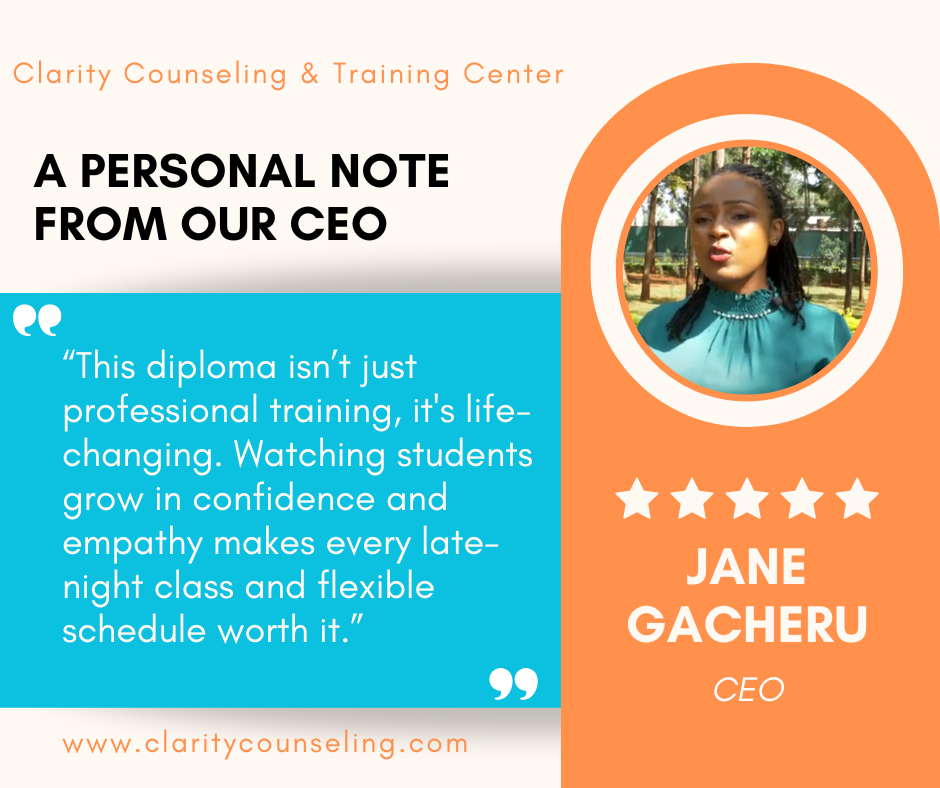
That sense of transformation is what every new student steps into.
From Theory to Practice Diploma In Counselling Psychology Class
From your first semester, you absorb theory but in a real-world counselling psychology setting.
You’ll step into community centers, NGOs, and corporate wellness spaces where conversations aren’t rehearsed. They’re raw. A teenager opens up about a fight with their parents. A colleague admits to burnout. A community member struggles to find the right words for their grief.
In those moments, your training kicks in as a second nature. You’ll feel the difference between knowing the definition of “active listening” and actually holding space for someone without rushing to fix them. That’s where skill becomes art.
This early practicum is for “experience points” to build confidence. It prepares you to handle sessions in schools, workplaces, hospitals, or ministries without that voice in your head saying, “I’m not ready yet.”
One graduate from our last class shared:
“Before joining Clarity, I wasn’t sure I could actually help anyone. But in my second semester, I handled my first community counseling session. The feedback I got from my supervisor made me realize yes, I can do this.”
Flexible, Inclusive, Accessible Psychology Diploma Course
From experience, signing up for further study sounds exciting until the reality of your calendar hits. You’re already busy: maybe teaching, running projects, raising a family, working shifts, or serving abroad.
That’s why flexibility is a perk built into the DNA of Clarity’s Diploma in Counselling Psychology program. There’s a structure for nearly every lifestyle including:
- Psychology Diploma Course evening classes for those working full-time days.
- Weekend sessions for parents, ministers, trainers, or anyone whose weekdays are unpredictable.
- Online and hybrid Psychology Diploma Course learning options for Kenyans in the diaspora or those who travel often for work.
You can be a Kenyan teacher in Qatar, logging into a live class after school hours. Your classmates are logging in from Nairobi, Kisumu, and Mombasa. You share perspectives, practice roleplays, and get real-time feedback from Clarity’s diploma in psychology facilitators who understand Kenyan contexts. Something no generic online course can give you.
And if you’re starting later in life even at 52, our diploma in psychology course covers you. Many students come from careers in law, finance, social work, or healthcare. Far from being a disadvantage, that experience enriches your training. It shapes the empathy you bring to the table and gives you unique insight into the clients you’ll serve.
“I joined at 52, worried I’d be the oldest in the class,” says a recent alum. “Instead, I found peers from every age and profession. The diversity made the learning richer.”
Diploma in Psychology Course Accreditation & Professional Pathways
Training is an investment of time, energy, and money therefore it needs to count. Clarity’s diploma is fully recognized, aligning with the Kenya Counselling and Psychological Association (KCPA) and delivered in partnership with the Kenya Institute of Professional Counselling (KIPC).
This is more than a piece of paper to hang on the wall. It’s about credibility.
When you introduce yourself as a counselor, whether in a Nairobi boardroom, a community health clinic, or a diaspora support group, you’ll carry accredited qualifications in counselling psychology that speak for you.
The program is rooted in ethical practice, legal awareness, and professional boundaries. So whether you’re working with minors, corporate employees, trauma survivors, or community members, you’re both well-meaning, competent and safe.
The paths after graduation are many:
- Join a school as a counselor.
- Work in community health programs.
- Offer mental health support in NGOs or humanitarian work.
- Integrate counselling skills into HR, ministry, or law enforcement roles.
- Start your own counseling practice either face-to-face or online.
The diploma in counseling psychology is your ticket into spaces where skilled mental health professionals in Kenya are needed, valued and respected. You might just as well, within three months of graduating, get an offer for a counseling role at an NGO, like one of our former students notes after graduation. “It wasn’t just the diploma, it was the confidence, network, and skills I’d built.”
Transparent and Supportive Financial Structure for The Psychology Diploma Course
Cost is one of the first questions most potential students have and rightly so. Clarity Counseling & Training Centre removes the guesswork. You know the full investment before you even start: KES 176,000 for the full two years (30 units over six semesters), payable in flexible installments. No fine print. No hidden “extra” course fees that appear halfway through.
And then there’s the 20 personal therapy sessions, charged separately. At first glance, it might feel like an extra cost. But think of it this way: if counseling is about guiding others through emotional terrain, shouldn’t you have walked that terrain yourself?
These sessions are part of your education and transformation as a counsellor. Many graduates say those 20 sessions were the most life-changing part of the program. You learn how it feels to be the client. You experience the fears, the resistance, and the breakthroughs. That experience makes your own counseling practice richer and more human.
Clarity also works with you to create a payment plan that fits your situation. Whether you’re a banker in Nairobi, a nurse in Kisumu, a church leader in Eldoret, or a community worker in Canada, you can pace your payments without derailing your finances.
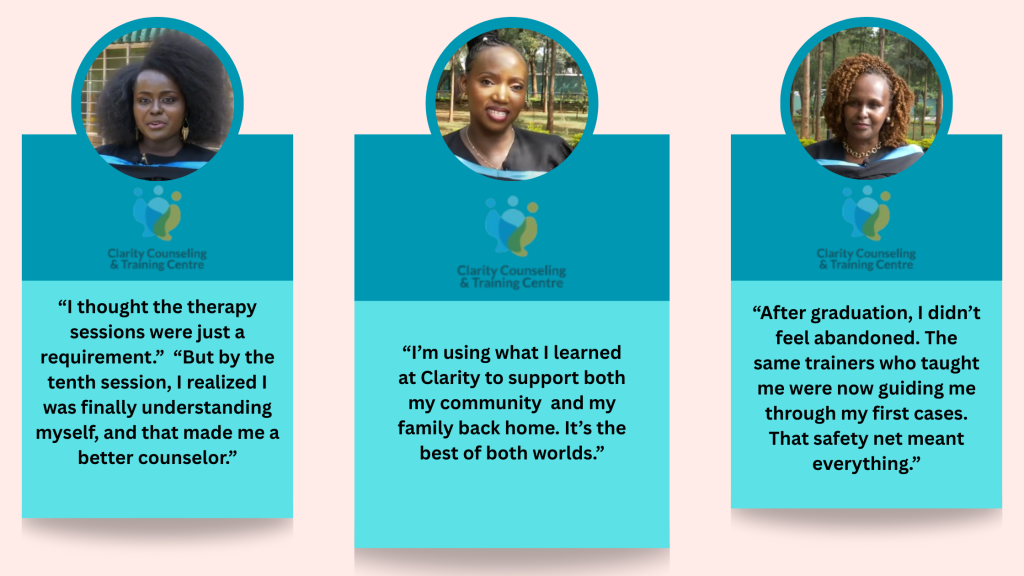
Post-Graduation Support After the Diploma Counseling Course
In many institutions, graduation is the finish line. At Clarity, it’s the starting line for the rest of your professional journey. Once you graduate, you join a network of counselling professionals in Kenya and abroad who share referrals, collaborate on projects, and offer peer support.
If you’re in the diaspora, this network helps you stay connected to Kenyan mental health trends and resources. If you’re in Kenya, it opens doors to opportunities you might never find on your own.
There’s also continued mentorship from Clarity’s trainers. You won’t be left wondering how to navigate your first client case, draft a professional profile, or approach organizations for work. You’ll have guidance.
This matters because the first year of counseling work can be intimidating. The support ensures you’re not facing it alone whether you’re handling trauma cases, workplace disputes, or community grief.
How Clarity Stands Out vs. Other Kenyan Psychology Diploma Courses
Kenya has other counseling diploma programs. Many have skilled trainers and strong curriculums. But here’s where Clarity steps into its own league:
- You practice from the start, no “wait until you’re ready” moment.
- Flexibility isn’t an afterthought whether you’re in Nairobi, Garissa, Toronto, or Abu Dhabi, you can learn without uprooting your life.
- Self-awareness is part of the curriculum and therapy sessions are woven into your growth.
- Transparent costs keep you in control, no surprises.
- Support continues long after graduation, mentorship and alumni networks grow with you.
- For a teacher, this could mean spotting the silent student before they slip through the cracks.
- For a banker, it could mean helping colleagues manage stress in high-pressure environments. For a medic, it could mean addressing burnout before it burns through.
- For a parent, it could mean having the words and the patience when your child shuts down.
And for Kenyans in the diaspora? It’s a way to gain a credential that honors Kenyan culture while serving your current community abroad. That blend of local insight and global application is rare and powerful.
FAQs – Diploma in Counseling Psychology at Clarity
1. What is the Diploma in Counselling Psychology at Clarity Counseling?
It’s a 2-year, TVETA-accredited program blending theory, practical skills, and supervised clinical experience to prepare you as a competent, ethical counselor. The course is recognized by the Kenya Counselling and Psychological Association (KCPA) and delivered in partnership with the Kenya Institute of Professional Counselling (KIPC).
2. Who should enroll in this diploma?
This program is ideal for:
- Teachers, NGO workers, HR professionals, community leaders
Social workers, medics, church leaders, law enforcement officers - Kenyans in the diaspora seeking a culturally relevant, accredited program
- Anyone passionate about mental health who wants practical counseling skills
3. What are the entry requirements?
You’ll need:
- KCSE certificate or equivalent
- A passion for helping others and willingness to commit to the 2-year training
If you already hold a degree but lack practical counseling experience, this diploma bridges that gap.
4. How is the program delivered?
We offer flexible study modes to fit your lifestyle:
- Evening and weekend classes (Nairobi campus)
- Online and hybrid options for diaspora and working professionals
- Small class sizes for personalized mentorship
5. What makes Clarity’s diploma different from other programs in Kenya?
- Early hands-on experience in NGOs, schools, hospitals, and corporate wellness programs
- 20 personal therapy sessions to deepen self-awareness and empathy
- Transparent fees (KES 176,000 for the full 2 years, payable in installments)
- Post-graduation alumni network and continued mentorship
- Christian values integrated into a supportive, inclusive learning environment
6. What will I learn?
- Counseling models: Humanistic, cognitive-behavioral, psychodynamic, eclectic
- Assessment skills: How to evaluate client needs and create treatment plans
- Evidence-based interventions for anxiety, depression, grief, trauma
- Ethical practice and professional boundaries
- Hands-on practicum with real clients
7. Where can this diploma take me?
Graduates work in:
- Mental health hospitals & wellness clinics
- School counseling programs
- Private practice (face-to-face or online)
- NGOs and humanitarian organizations
- Corporate Employee Assistance Programs (EAPs)
8. Is the diploma in psychology recognized internationally?
While accreditation is Kenyan-based, the skills and ethical standards meet global best practices. Many alumni successfully work abroad or integrate their skills into community roles in the diaspora.
9. How much does the diploma cost?
- KES 176,000 total for 2 years (30 units)
- Payable in flexible installments
- Separate charge for the 20 personal therapy sessions, which are a core part of your growth
10. Why are personal therapy sessions required?
To counsel others effectively, you must understand yourself. These sessions:
- Help you process your own experiences
- Show you what it feels like to be a client
- Strengthen empathy and professional insight
11. How do I apply?
You can:
- Fill out the enrollment form on our website
- Provide your KCSE certificate (or equivalent) and a brief statement of interest
- Select your preferred mode of study (evening, weekend, online, or hybrid)
12. When does the next intake start?
Our September 2025 intake is currently open for applications. Spaces are limited to maintain small class sizes.
13. Can I study while working or living abroad?
Yes. Our online and hybrid modes allow you to join live sessions, access learning materials, and interact with classmates and facilitators from anywhere in the world without losing the Kenyan cultural context that makes this program unique.
14. Will Clarity help me find work after graduation?
While we don’t guarantee jobs, graduates benefit from:
- Alumni referrals
- Networking events
- Post-graduation mentorship
- Guidance on starting private practice or integrating skills into your current profession
15. How is the program assessed?
- Class participation and assignments
- Practical counseling sessions under supervision
- Written exams and case studies
- Evaluation during field placements

